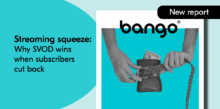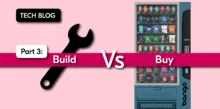Mobile Wallet Opportunities for Bango
by Sukey Miller

A number of shareholders have been asking about how Bango views the “mobile wallets” that have been discussed and announced a great deal over the last couple of years.
Mastercard/Nokia Visa Isis(Verizon/AT&T/T-Mobile/Discover) Sprint Google PayPal
Mobile Wallets enable users to store financial credentials – like credit card details, bank account access codes and potentially some “stored value”. Just like a real wallet might hold your credit cards, a secretly scribbled password for your bank account, and some cash.
Unlike a real wallet, your mobile wallet can connect to the internet – possibly helping with security, and thru technologies like bar codes, cameras, accelerometers, and NFC it is possible for the wallet to reveal its contents and authenticate to a “merchant” without having to use a swipe card or chip and pin.
Bango enables mobile web pages or downloaded apps to collect payment from users – normally through their mobile operator (who then collects the payment) or a credit or debit card.
Bango has already integrated into the PayPal mobile wallet, which is starting to become more popular. In the same way, a wallet holding credit cards, bank access credentials or a pre-pay can also be accessed by Bango – through the phone. The app or website using Bango does not have to integrate into all the different possible mobile wallet standards (at our last count there were at least 38) or find out which wallet the user has, they can leave all that to Bango. Bango can identify the available wallet, and connect to the most popular wallets – collecting payments. Just like Bango does with 50+ carrier billing systems.
So, if wallets become more popular, and are able to support apps and web access, Bango and Bango customers will be able to benefit.
Bango expects that wallets will continue to be in relatively small niches initially, until more standards develop. The technology – NFC, barcode, bumping, bluetooth etc. – will evolve at the same time. Bango expects that within 5-6 years, most mobiles will be “NFC equipped” and therefore able to easily replace smartcards such as Oyster – driving mass adoption.
In Japan, the adoption of mobile wallets is more advanced – primarily because the largest mobile phone company – DoCoMo has been driving this for many years. There is a great video about the “FELICA” system here.
Subscribe to our newsletter
Get the latest subscription bundling news and insights delivered straight to your inbox.



